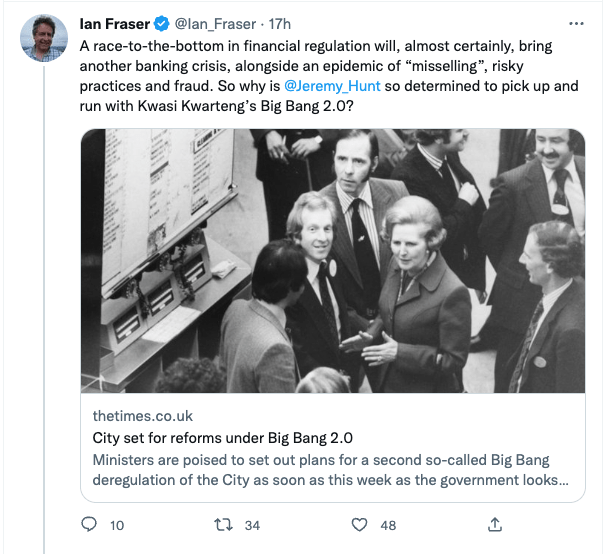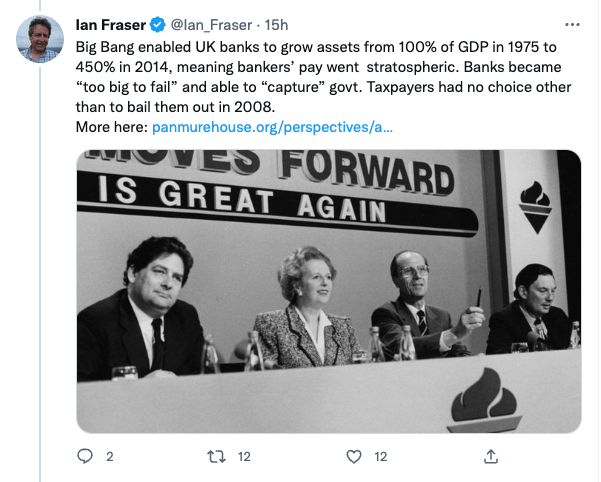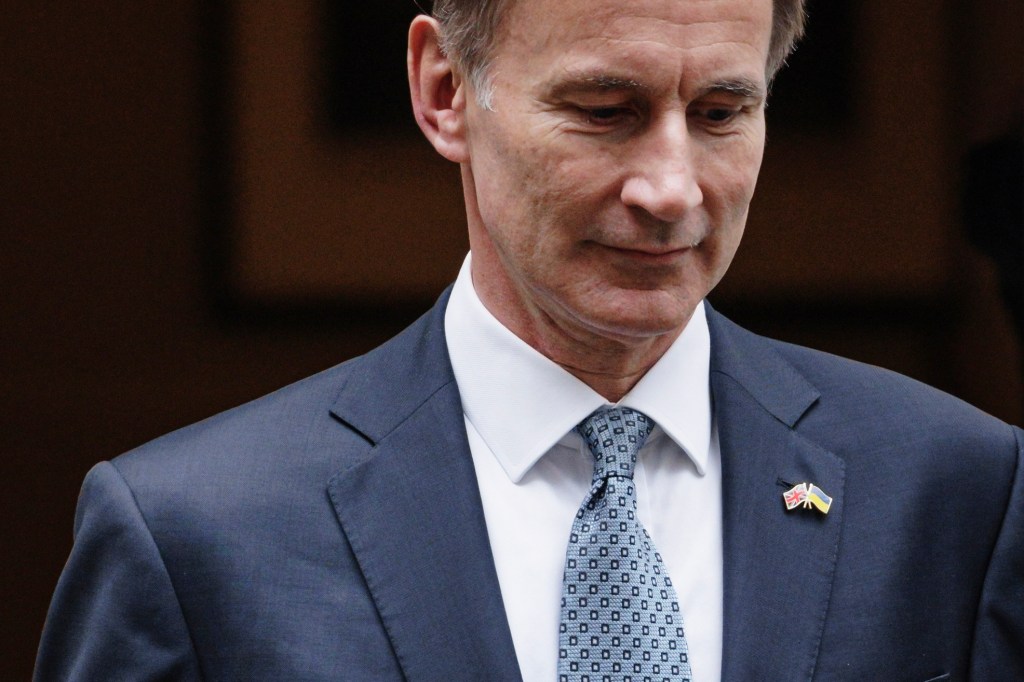Just days before UK Chancellor Jeremy Hunt is due to announce a package of measures the government says are aimed at boosting the country’s financial sector, regulators have been told to raise their game.
Andrew Griffith, the Economic Secretary to the Treasury, has written identical letters to the Financial Conduct Authority (FCA) and the Prudential Regulation Authority (PRA) asking for “an update on your plans to increase transparency on … efforts to be world-leading in terms of operational effectiveness”.
It’s the latest development in what is becoming a complex dance between the government and the sector. During his brief time as Chancellor , Kwasi Kwarteng talked up the prospect of a “Big Bang 2.0” approach that would sweep away regulation deemed unnecessary and boost competitiveness.
Edinburgh Reforms
Under Hunt, the language has softened, with the preferred phrasing now being “package of reforms”. The expected 30-point plan is being talked up as The Edinburgh Reforms – so named because the city is where Hunt will deliver his speech, and to signal the government recognizes there are vital financial centres beyond London.
But underlying the presentation is the need to recalibrate the City of London after Brexit, and to address concerns by City executives that some existing legislation is acting as a drag on activity. MiFID II is frequently mentioned, and it’s also clear that the Solvency II regime covering insurers is in Hunt’s sights. He called time on that piece of legislation in his autumn statement, and on Friday is expected to confirm details.
Changes to MiFID and Solvency II could not have been carried out on a unilateral basis if the UK had still been in the EU, but other changes, for example easing the bank ringfencing regime, could have been made whether or not the country had voted to leave the EU.
Brexit factor
How the Brexit factor is presented in Hunt’s reform package is likely to have more to do with management of a fractious Conservative Party than anything else, but Griffith’s letter to regulators suggests the prevailing view inside government is still that regulation is more of a blocker than an enabler. And a frequently-aired criticism in the sector is that the regulators take too long to grant authorizations.
The FCA and PRA chief executives have committed to improve transparency, particularly by publishing data on the time it takes to grant authorisations on a more frequent basis.
Chief Secretary to the Treasury John Glen was reported in the Financial Times as telling a conference in London this week that he would “like to take this opportunity today to put to bed once and for all the idea that this is deregulation for deregulation’s sake”, adding that “there is no race to the bottom”.
But veteran commentator Ian Fraser, the journalist who wrote the seminal account of the fall of RBS, is among those who are not convinced. ‘Why is @Jeremy_Hunt so determined to pick up and run with Kwasi Kwarteng’s Big Bang 2.)?” he tweeted, going on to make a direct comparison with the original financial Big Bang of October 1986.


All eyes are now on Friday’s speech from Hunt.
















